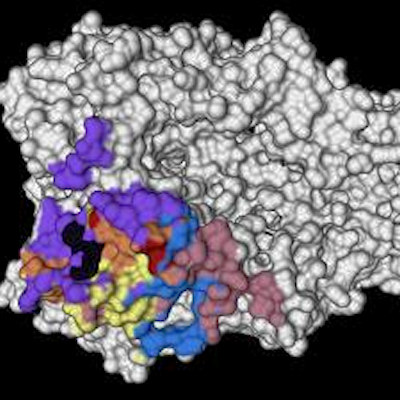November 28, 2022 -- A multivalent mRNA vaccine has protected animals against a variety of influenza strains, suggesting the candidate could play a role in mitigating the threat of seasonal and pandemic flu.
Manufacturers update their vaccines ahead of each flu season in light of the strains experts expect to be circulating at the time. However, the predictions, and by extension the vaccines, are imperfect and leave some people lacking adequate protection against seasonal flu. Occasionally, a strain mutates into a form that spreads rapidly and causes an influenza pandemic.
While many vulnerable people receive flu vaccines once a year, the prophylactics typically provide little protection against potential pandemic strains. The ineffectiveness of seasonal influenza vaccines against some new strains can enable the pathogen to spread around the world, causing a pandemic, and leaves people vulnerable to its most severe effects. As happened with COVID-19, manufacturers would need to race to develop vaccines that specifically target the virus to bring the crisis under control.
There may be a way to avoid that scenario. In an article published November 24 in the journal Science, researchers from the Perelman School of Medicine at the University of Pennsylvania describe the development of an mRNA vaccine against all 20 known influenza A virus subtypes and influenza B virus lineages. By encoding for all the hemagglutinin antigens, the lipid nanoparticle vaccine may protect against a wider range of strains of influenza.
The researchers tested the vaccine in mice and ferrets. Animals that received the vaccine had high levels of cross-reactive and subtype-specific antibodies that reacted to all 20 encoded antigens. The antibodies provided protection against the targeted viral strains.
Notably, the animals were also protected against mismatched viral strains, suggesting that the vaccine could provide a baseline level of immunity versus as yet unknown influenza viruses with pandemic potential. Study senior author Scott Hensley, PhD, a professor of microbiology at the Perelman School of Medicine, explained the implications of the findings.
"The idea here is to have a vaccine that will give people a baseline level of immune memory to diverse flu strains, so that there will be far less disease and death when the next flu pandemic occurs. It would be comparable to first-generation SARS-CoV-2 mRNA vaccines, which were targeted to the original Wuhan strain of the coronavirus. Against later variants such as omicron, these original vaccines did not fully block viral infections, but they continue to provide durable protection against severe disease and death," Hensley said in a statement.
Currently, Hensley and his colleagues are designing human clinical trials. They contend that if these trials prove to be successful their vaccine may be useful for eliciting long-term immune memory against all influenza subtypes in people of all age groups, including young children.
Copyright © 2022 scienceboard.net








